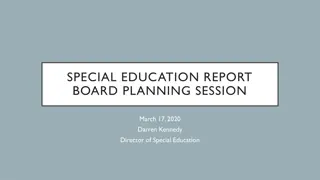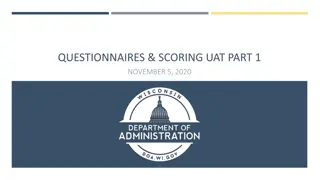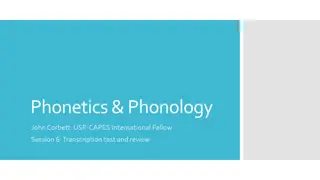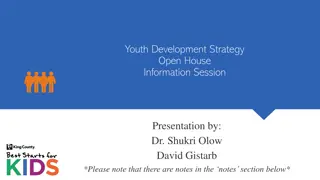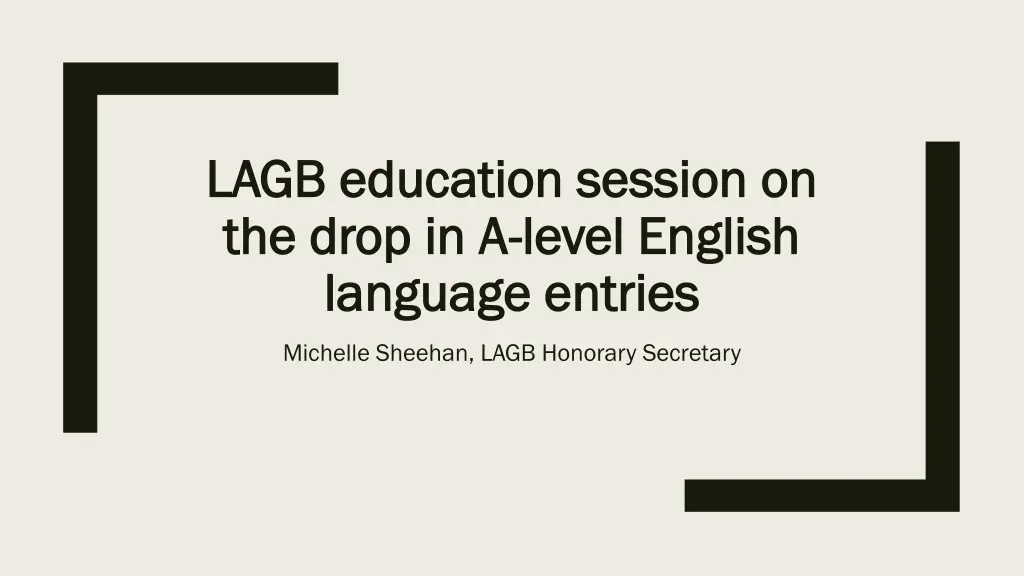
English Language Studies: Impact on A-Level Entries and Educational Discussions
Explore the declining trend in English A-Level entries with insights from meetings between education bodies like LAGB and CEF and the Department for Education (DfE). Issues like assessment culture, GCSE teaching, and the importance of English language as a discipline are discussed in these forums.
Uploaded on | 2 Views
Download Presentation

Please find below an Image/Link to download the presentation.
The content on the website is provided AS IS for your information and personal use only. It may not be sold, licensed, or shared on other websites without obtaining consent from the author. If you encounter any issues during the download, it is possible that the publisher has removed the file from their server.
You are allowed to download the files provided on this website for personal or commercial use, subject to the condition that they are used lawfully. All files are the property of their respective owners.
The content on the website is provided AS IS for your information and personal use only. It may not be sold, licensed, or shared on other websites without obtaining consent from the author.
E N D
Presentation Transcript
LAGB education session on LAGB education session on the drop in A the drop in A- -level English language entries language entries level English Michelle Sheehan, LAGB Honorary Secretary
Common English Forum (CEF) The CEF is a body which exists to consider matters of current interest in English studies both in schools and universities. LAGB and University Council of General and Applied Linguistics now represent English language (and linguistics). As part of CEF I attended meeting with DfE in November 2018 (standing in for David Adger) on the subject of the fall in entries to A-level English examinations. This followed on from a previous meeting that the CEF had had with the DfE in January 2018, at which the LAGB was not present.
The fall in English A-level entries (2018 data from University English) English Language -15.7% on 2017 -26.8% on 2012 English Language and Literature -13.9% on 2017 -45.4% on 2012 English Literature -4% on 2017 -16.5% on 2012 English and Media Centre survey highlights three main reasons for this fall (according to beliefs of teachers): the removal of AS level in year 12, overemphasis on STEM subjects at the expense of English, the belief that students had been put off by the new English GCSEs, which were perceived as narrow and dull, with an intimidating workload. Another potential reason: only English Lit was a Russell Group facilitating subject facilitating subject.
Meeting with the DfE (i) CEF prepared a statement defending the benefits of English language (and linguistics) as a discipline which was also endorsed by British Association for Applied Linguistics, British Association for Clinical Linguistics, Poetics and Linguistics Association, UK Cognitive Linguistics Association, University Council of General and Applied Linguistics (who were not then CEF members). The meeting was somewhat underwhelming. The DfE told us to take up the facilitating subject issue with the Russell Group (it has since been abandoned). They took no responsibility for assessment culture or GCSE teaching from year 9. Discussion focused mainly on literature (which is understandable given CEF membership).
Meeting with DfE (ii) The DfE has actually since made an adjustment to the Ofsted inspection framework which may address some of these issues. DfE asked whether these changes have led to a drop in entries for English Language in HE and about the potential implications of a drop in English Language graduates on the UK workforce. They were really only interested in whether this might lead to a shortage of speech and language therapists (actually Speech Science (B620) and (B630) Language pathology undergraduate degrees were up slightly in 2018, so there is no evidence for such an effect).
Impact on English Language in HE English Language (Q310) small drop 2013-2016 English Studies (Q300) slightly larger drop 2013-2016 Linguistics (Q100) small rise 2013-2016 This represents an overall drop (5%) in English language and linguistics in this period. Whereas English language numbers used to be far greater than linguistics, they are now more comparable . There has been a small swing from English language to linguistics. The increase in linguistics is due to increases at non Russell-group institutions.
Future plans DfE will gather information and then roll out some kind of intervention the following year (2020). CEF meeting in October 2019 Follow-up meeting with the DfE in November 2019. Please get in touch if you have ideas about how to tackle this issue with the DfE! The English Association are taking action via the Choose English media campaign!
Issues for LAGB members 1. Whether this switch in undergraduate numbers from English language to linguistics is something we should be worried about; Whether a further reduction in entries for English Language A-level will start to have a negative effect on recruitment for linguistics in HE; Whether we want to play a role in lobbying for an improvement in GCSE English language; How we can make the case more clearly regarding the employability of English language and linguistics graduates; Whether we need to seek better representation for linguistics (and English language) on English subject associations; Whether CliE/LAGB EC should also be represented on these associations. 2. 3. 4. 5. 6.



